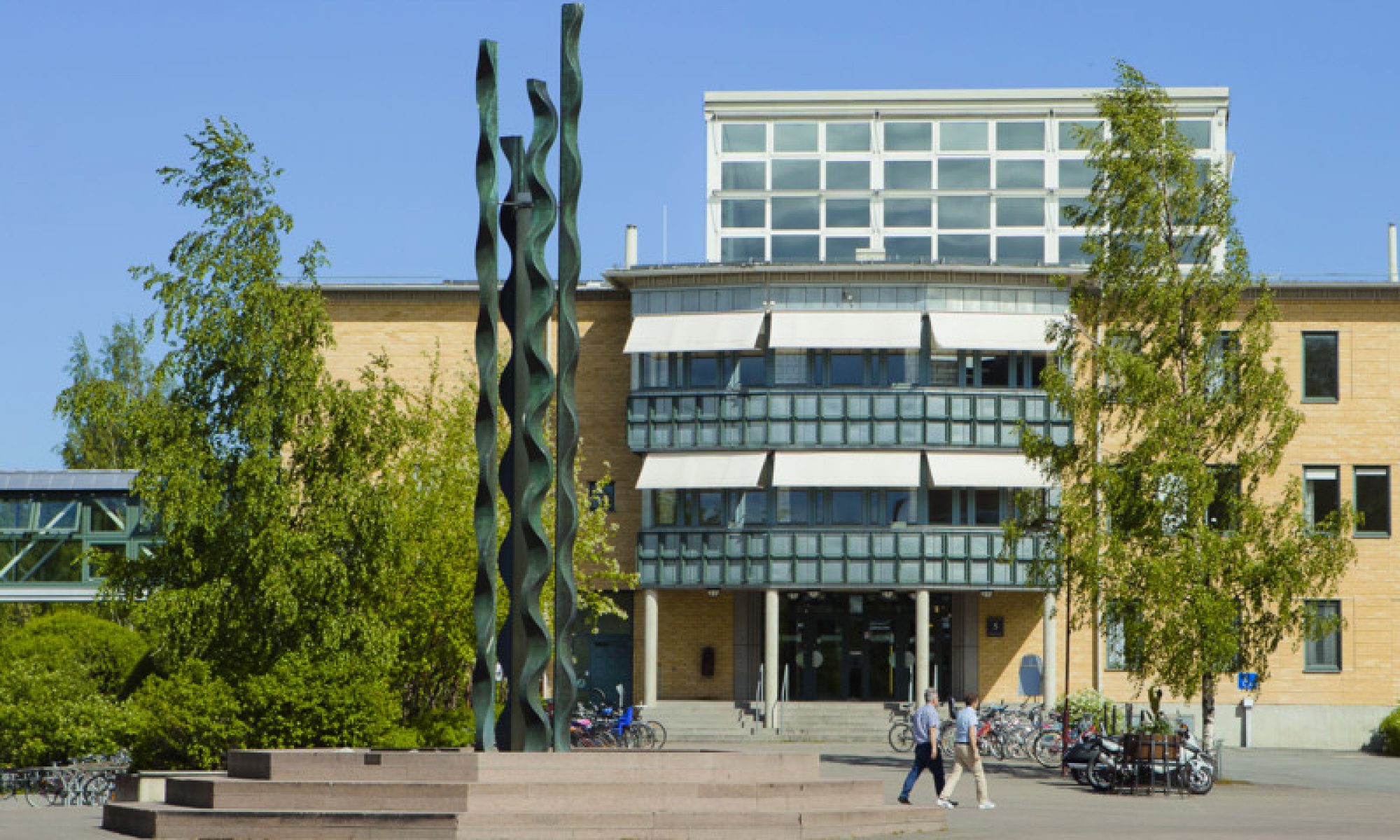Is there a Human in our AI Future?
Date: Friday November 29
Time: 12.00-14.10
Location: MIT-Place, by the main entrance of the MIT Building
Host: Faculty of Arts and Humanities, Umeå University
Register: November 27 latest at 10.00, please, use this link.
Program
12.00-12.10 Welcome + lunch sandwich & coffee + short info about AI@UmU
12.10-12.40 Humanistic Perspectives on AI: First Looks
Charles M Ess, Professor in Media Studies, University of Oslo
I will first describe what makes the current wave of interest in AI different from previous cycles, and then discuss specific ways AI and robotic technologies help us explore central human questions – of self-knowledge, ethics and ethical judgment, and sex, love, eros and embodiment (sexbots). The comments on self-knowledge and ethical judgment further help prepare us for the more detailed explorations in On Artificial Minds, (Pär Sundström) and Do Autonomous Systems Make Us More or Less Autonomous? (Kalle Grill). The discussion of sexbots likewise will be further expanded by the discussions of Human/AI Relationships in Speculative Fiction (Maria Lindgren Leavenworth), Natural language processing and spatial cognition: What can robots learn from linguistic patterns? (Marlene Johansson Falck) and AI and Manual Labour (Johan Jarlbrink)
12.40-12.55 On Artificial Minds
Pär Sundström, Professor in Philosophy, Umeå University
I will discuss whether it is possible to build artificial minds. Is it possible to build machines that can see, think, feel, solve problems, invent, wonder, dream, wish, mourn, love, and create and appreciate art like we do? Or who even can do some of these things better than we human beings can? I will also discuss risks and prospects of such a scenario.
12.55-13.10 Do Autonomous Systems Make Us More or Less Autonomous?
Kalle Grill, Associate professor in Philosophy, Umeå University
Like all technology, autonomous computer systems can increase our ability to influence our environment and our lives. In particular, by surveying our environment and issuing tips and reminders, future AI systems may support us in living in greater accordance with our own values. At the same time, outsourcing cognitive and social tasks to machines may leave us less capable, less responsible, and less autonomous.
13.10-13.25 Human/AI Relationships in Speculative Fiction
Maria Lindgren Leavenworth, Associate Professor of English Literature, Umeå University
In the wealth of literary depictions of Artificial Intelligence it is not only technological advances that are imagined, but also new forms of love, family and kinship. By looking at a small sample of texts, I address what human/AI relationships reveal about ethics, body and identity.
13.25-13.40 Natural language processing and spatial cognition: What can robots learn from linguistic patterns?
Marlene Johansson Falck, Associate professor of English linguistics, Umeå University
The ways in which natural language users construe different concepts give us an idea of how they structure their thinking. They provide information of how speakers structure their experiences of both concrete, real world physical objects, such as houses, or less abstract concepts such as our concepts of the air around us, love, or a diet. Patterns such as these might be valuable for robotic world modelling.
13.40-13.55 AI and Manual Labour
Johan Jarlbrink, Associate professor in Culture- and Media Studies
Supervised machine learning requires training data tagged and classified by human beings. Although it is often outsourced to and hidden in facilities in Eastern Europe and Southeast Asia, manual work is essential for many AI systems. I’m interested in these repetitive tasks, how they are built into the infrastructure that make smart machines possible.
13.55-14.10 Q & A + summary
The AI Friday is an event organised as part of the national effort AI Competence for Sweden aimed at increasing knowledge about AI: https://umuais.cs.umu.se/ai-sweden/
Mark also December 6 in your calendars!
